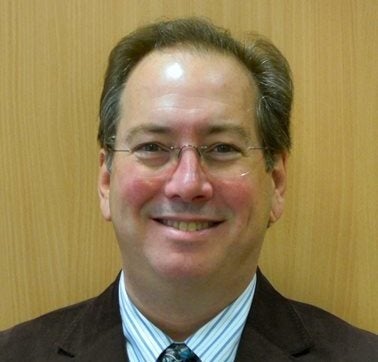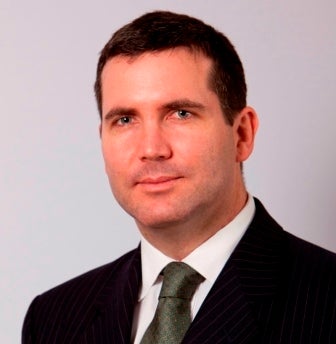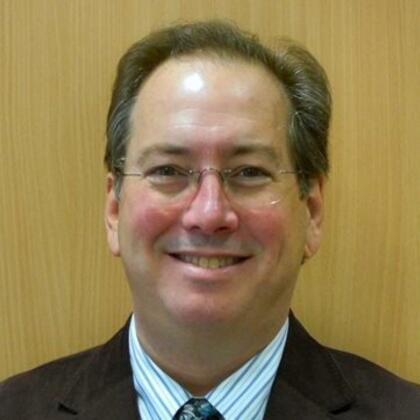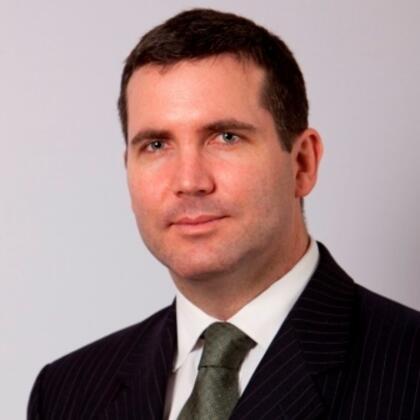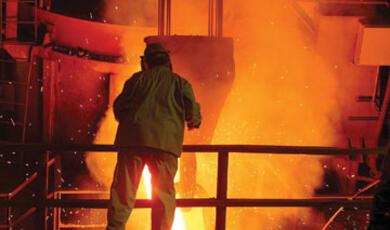Peak Everything - Enough To Go Round?: The Role of Innovation
Share
- Details
- Text
- Audio
- Downloads
- Extra Reading
Welcome
Kegan Lovely, Environmental Manager, Bank of America Merrill Lynch
Introduction
Professor Michael Mainelli, Chairman, Z/Yen Group
Keynote Speech:
Resource Scarcity, Resource Productivity and Economic Growth: The Role of Innovation
Professor Paul Ekins, UCL Energy Institute
Download Text
Long Finance-London Accord Spring Conference 2011 “Peak Everything: Enough To Go Around?” c/o Z/Yen Group Limited, 2011
Grant Murgatroyd has worked as a financial journalist and editor for 20 years, and has written extensively on emerging markets, private equity, corporate finance and M&A. More recently he has written about the relationship between finance, society and the environment. He attended the Long Finance-London Accord Spring Conference in March and found it more than just another talking shop.
There are few better places to discuss the future of finance than King Edward Hall in the City of London, where over 150 investors, environmentalists, regulators, academics and journalists gathered for the Long Finance-London Accord Spring Conference: “Peak Everything – Enough to Go Around?” The grandiose setting of the Hall reminds us of the history of finance but is part of the award-winning Bank of America Merrill Lynch Financial Centre, a building that speaks - at least in architectural terms – of its future.
“Peak”, says Michael Mainelli, “is a word of the zeitgeist”. We’ve all heard of peak oil, but peak metal or peak grain? You could call it “peak planet”. Mainelli, founder of Long Finance and director of the London Accord, said that peaks coincide with asset bubbles and – even in a post-scrunch world – we still have plenty of them. Have we run of out time? When are we going to start doing something?
The presentations and debates were thought provoking, lively and driven by questions from an audience as well versed in the topics as the speakers. So what did we find out?
Keynote: Resource Scarcity, Production & Innovation
Professor Paul Ekins, UCL Energy Institute
Is there a lack of resources?
Can economic growth and resource consumption be decoupled?
What is it going to cost?
Ekins kicks off with a controversial statement: the term peak may be inappropriate because it implies a lack of sustainability. We are not short of fossil fuels or renewable energies; the question is - can we access it when we want it? If we can’t we have peaks and, before peaks, volatile prices [Ed: question answered, then].
Humans are the only species to have a systematically negative effect on the biosphere, causing it to produce fewer environmental functions of lower quality. The economy has grown financially, but also in terms of environmental impact and disorder.
How bad is the problem? Humans have only got good at consuming things in the past 200 years, but we’ve got really good. Ocean biomass now is 10% of what it was then. We have lost biodiversity, are changing the climate and altering the little known but immensely important nitrogen cycle. We are in danger of moving out of what Ekins calls “the safe operating space for humanity”.
We need to decouple economic growth from resource consumption – but the challenge of economic growth is so great that decoupling cannot be achieved without growth stopping or slowing. Measures exist, but there is not the political will to implement them. There is no incentive to reduce emissions because they are not priced. Pricing is the key to resource efficiency, investment and changing behaviour.
Staying in the “safe operating space” is going to cost us – Ekins estimates 3% of GDP [Ed: think that’s going to be painful? These are World Bank estimates of global economic growth for 2007 through 2011: 3.9%; 1.7%; -2.2%, 2.7%, 3.2%]. We need, says Ekins, to become an investment economy, not a consumer economy as we were in Victorian times and as China is now.
Panel: Prosperity and Resource Scarcity – What Role Should Finance Play?
Professor Paul Ekins, UCL Energy Institute
Charles Secrett, Founder, The Robertsbridge Group
Emin Eyi, Partner, SP Angel Corporate Finance
Dr Tim Morgan, Global Head of Research, Tullet Prebon Group
Can markets drive sustainability?
Do governments have the will?
Should we give up hope?
“Ignorance, lack of experience and ideological bias skew markets in the wrong way. We have got to get the direction of travel right, but it seems governments are reluctant to package policy instruments to achieve this. If it is cheap and convenient to pollute, that is what companies and households will do.”
A big message from Charles Secrett to start the session: markets fail and need to be regulated. Panellists agreed, with Morgan saying that we were not just failing to invest, we were plundering from the future. Carbon emissions need to be reduced from 12 tonnes per person to 1-2.
People need to be aware of the benefits of moving to a sustainable future – estimated at a cost of 3% of GDP – and at the moment they aren’t. Governments are scared of setting policies that are unpopular with the public even if they are necessary, as evidenced by extreme reactions to inadequate tinkering with pensionable age limits or healthcare cuts. So pricing and finance – and that means tax – will have to take the lead.
It wasn’t all doom and gloom. All panellists agreed that energy and resources remain abundant but are incorrectly priced. In 1990 estimates for the world population in 2050 were 12 billion; now they are 9 billion. A third of all food in the world is thrown away. Mobile phones are designed to be thrown away.
But the transformation will be greater than anything seen for 400 years: Morgan noted that energy constraints will cause a re-examination of what quality of life means; Secrett said we will need “cooperative behaviour and egalitarian relationships between and within countries”; and Ekins said “we might be able to deal with environmental issues if we had fairer societies”. The world in 2050 will be very different, but it will be better. The consequences of not making it so are terrifying.
Presentation: Finance, Biodiversity and Managed Ecosystems
Dr Genevieve Patenaude, University of Edinburgh
Are we any good at producing food?
Where have the fish gone?
Can human development and environmental impact be balanced?
A couple of thousands of years ago it may have been possible. A carpenter from Nazareth took two fish (and five loaves) and, with a little help from his friend, fed 5,000 people. We need a miracle like that now.
A light-hearted way of leading to Patenaude’s presentation (see slides). Food production, she says, has been a remarkable business success: food availability has trebled since 1950, production per capita increased 25-30% and food is cheaper than it has ever been. Not surprisingly, we should not be complacent.
Fish catches have declined since the late 1980s and those we do catch come from deeper (280m in 2001 compared to 170m in 1950) and they’re smaller. The collapse of Atlantic cod stocks of Newfoundland is a worrying example: catches doubled from 120,000 tonnes in 1850 to 250,000 tonnes in the late 1950s, when the trawlers arrived. Catches increased to 800,000 in the early 1960s, before a stock collapse and reversion to previous practices. From the late 1970s to early 1990s around 200,000 tonnes were caught, before stocks collapsed completely. This, says Patenaude, raises big questions about the resilience of ecosystems, which were previously thought to recover if you left them alone.
Ecosystems globally are under stress. There is an unavoidable trade off between human development and environmental impact: we can be poor and ecologically sound, rich and ecologically unsound. For reference, countries that manage to strike the balance are in the Caribbean and Latin America. But there is wiggle room –if proper institutional choices are made. And it does come down to money – biodiversity needs to be priced.
Panel: Finance, Biodiversity and Managed Ecosystems: Where’s the data?
Professor David Hill, Chairman, The Environment Bank
Dr Genevieve Patenaude, Lecturer, University of Edinburgh
Ivo Mulder, Programme Officer, UNEP Finance Initiative
James Stacey, Partner, Earth Capital Partners
Can nature be measured financially?
Are market frameworks possible or desirable?
Can we make people see regulation as positive?
It was a similar theme. “We have to make nature economically viable,” said Hill. And we’re starting to: DEFRA habitat migration into the planning process; UNEP FI is working with 200 financial institutions to embed environmental data in a way financial institutions and policymakers can use; while accountants are starting look at how the deployment of capital affects the environment.
An obvious – and intelligent – question from the floor: “Are we trying to shoehorn this into a market framework?” Mulder thought so, saying that whilst nature is priceless we live in a society that doesn’t value what isn’t priced. Hill questioned how market based our economy is – given that farmers are paid £2.5bn to produce £2.6bn of food it is a non-market system causing crashes in biodiversity. Hill also disagreed that nature was priceless – it is infinity: “nature is the building block of everything and without it we do not have much future as a species”.
However, a market-based framework is needed because that is our world and the maxim that anything you don’t measure is insignificant holds true. Patenaude saw reasons for optimism, pointing to carbon trading, where the measurability of emissions has allowed for the creation of mechanisms to limit them (even if they are not working).
Stacey had little faith in the market. “The Thames is clean because people were not allowed to pollute it. We have become convinced of the market’s ability to deliver solutions and we need to get governments to understand that regulation is not a bad or difficult thing.” The chaos caused by a largely unregulated financial sector may help policymakers – and the public – buy that argument.
It was an interesting, informative and entertaining day. And for probably only the third time at a conference in 20 years as a journalist, there were as many people there for the drinks at the end as there had been at the beginning. I may have left with more questions than I’d arrived with, but they were much better ones.
This event was on Thu, 24 Mar 2011
Support Gresham
Gresham College has offered an outstanding education to the public free of charge for over 400 years. Today, Gresham College plays an important role in fostering a love of learning and a greater understanding of ourselves and the world around us. Your donation will help to widen our reach and to broaden our audience, allowing more people to benefit from a high-quality education from some of the brightest minds.


 Login
Login
